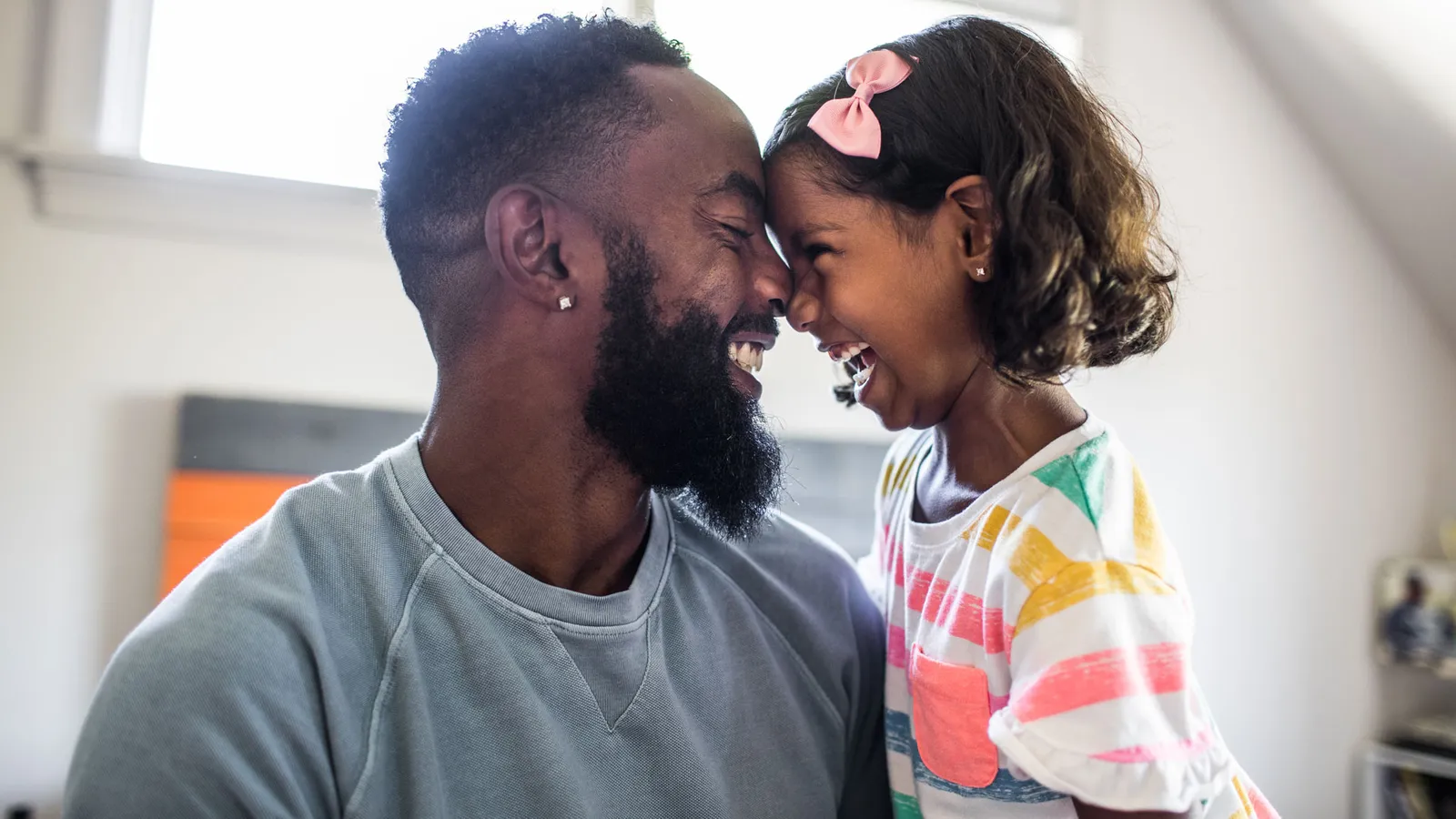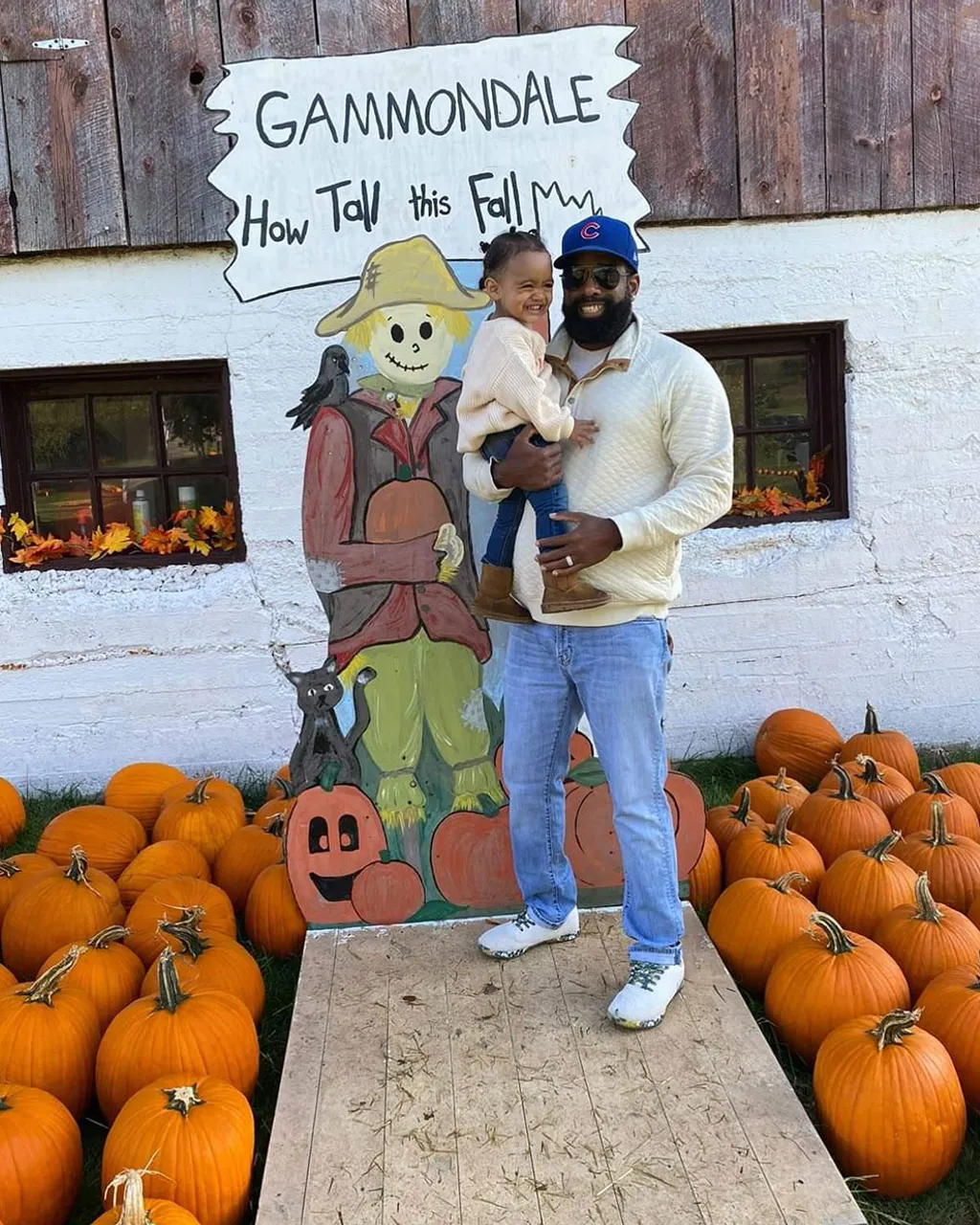The stigma of the stay-at-home-dad
Ask Steven Lange what he does, and he'll tell you he's involved in start-ups. Or that he works from home. Or that he's semi-retired, though he might go back to work full-time once his youngest child graduates high school next year.
What he's less likely to say is what he actually feels is most accurate.
"I'm a stay-at-home dad," says the Ohio, US-based 52-year-old, who worked in branding and product development for 30 years before he began staying home with his children in 2020. "But I don't think I would ever tell anybody that, or introduce myself that way," he adds. "I find myself feeling like I need to explain to you that I'm not just folding laundry and cooking dinner and going grocery shopping. I've got other stuff I'm doing."
That self-consciousness persists despite knowing just how beneficial his set-up has been: he's forged a closer relationship with his teenaged son; he's been around to help with his new grandchild; and the arrangement has enabled his wife to pursue a master's degree.
Stay-at-home dads like Lange are becoming more common. In the US, for example, the number nearly doubled from 1989 to 2012. But they're still relatively unusual. Of US families with opposite-sex, married parents, 5.6% have working mothers and non-working fathers, compared to the 28.6% with working fathers and non-working mothers. (It's worth noting that this includes people who are unemployed but may be seeking work, so it's an imperfect estimate). In the EU, it's even rarer: about one in 100 men pause their careers for at least six months for childcare, compared to one in three women.
That relative rarity means that men who make this choice can feel like the odd ones out – and sometimes are judged harshly. Even in cultures where fathers are expected to be more involved than in the past, they are still expected to be the breadwinners of the family and are frequently stereotyped as less nurturing or domestically adept than mothers.
All of this means that, for fathers like Lange, staying at home with the kids can feel unusual and ostracising – even if they wouldn't want it any other way.
'I feel like sometimes I'm being watched'
In countries like the US and Australia, the ideal father is expected to be more engaged in his children's day-to-day lives than in the past, says Brendan Churchill, a senior lecturer in sociology at Australia's University of Melbourne, who researches fatherhood.
Even so, "the male breadwinner model lingers. It is reinforced daily in our culture. Think about the advertisements on television or in the newspaper that reinforce the nuclear family of four," he says. "It also persists in our social policy frameworks, even though there's been lots of change – our reference point is still that family of four with a male breadwinner." Maternity leave, for example, remains far more generous in most countries than paternity leave.
This cultural belief that fathers should 'protect and provide' can plant an insidious narrative in the heads of stay-at-home dads, even those who feel that they're best suited to contributing to their families in their role as the primary caregiver.
"In high school, I never pictured myself going to college and having some fancy career. I was just so excited, always, to be a dad," says Spencer Bouwhuis, 25, in Utah, US. "It's always been a dream of mine to be a stay-at-home dad."
But growing up, he never felt comfortable sharing that with anyone, he says. The traditional model he'd been raised with in his community – he is a member of the Church of Jesus Christ of Latter-Day Saints – normally emphasised that fathers should provide for their families, while mothers should look after the home. When he was asked what he wanted to do as an adult, he'd say he wasn't sure. "I just didn't think I'd get a positive response" by telling the truth, he says.
Bouwhuis works seasonally, building decks. In 2021, as winter approached, he and his wife decided he would stay home for a few months to watch their then-six-month-old and two-year-old. Despite battling the same challenges as any stay-at-home parent – he particularly remembers an early period of "burnout" from trying to stay on top of home-cooked meals, keeping the house clean, clothes laundered and children cared for – he "loved it", he says.
Although Bouwhuis is back at paid work again now, he’s still the primary caregiver at least one or two days a week. For his family, this division of labour makes sense. He says his wife tends to have "more of that drive to go out and work". Even so, he sometimes finds himself battling the messaging he was brought up with: "I just feel like I should be the breadwinner, and I should go out and work [full time]."
In Chicago, Eric Taylor, 43, stays home to care for his two-year-old. As a PhD candidate in clinical psychology, Taylor has a flexible work-from-home set-up while his wife works two jobs out of the house.
Despite his equitable approach to gender and parenting – one of his main career aims is to empower fathers to feel as involved and valued as mothers – he, too, finds himself questioning his role. "I feel like sometimes I'm being watched, like when I'm doing dishes, by some kind of male oversight hierarchy group somewhere that's watching me and keeping tabs and saying, 'Why do you do the dishes so much?'", he says.
Even though Taylor does contribute financially to his family, he's sometimes pricked by guilt over not being the main breadwinner. "I struggle with feeling like, 'I'm not providing for my family'," he says. "I internally struggle with, 'Are you that guy that just stays home, this kept guy who is maintained by your wife while she goes out and brings home the bacon?'"
What if he wasn't earning any income at all, and he and his wife decided his main contribution to the family would be caring for his daughter? Taylor doesn't hesitate. "I couldn't handle it. No," he says.
The dad doesn't get these things right'
The inner voice that some stay-at-home dads battle is one challenge. Then there is how many find their role received or commented on by others.
There isn't good evidence that male caregivers are less equipped for the role than female ones. And recent research has shown that fathers, like mothers, encounter transformative changes to their hormones and neural networks when they enter parenthood – changes that seem to help them become more nurturing and empathetic. "Women are no more natural mothers than men are natural fathers – it involves a learning curve, but what makes it seem 'natural' is that women are expected to do it," says Churchill. Still, some men and women continue to believe that fathers shouldn't be full-time caregivers.
In Malta, Manrico Bugeja, 36, left his job as a French teacher six years ago to stay home with his children, now aged four and six. He and his wife both wanted their children to be with a parent rather than attend day-care, and his wife, an accountant, earned the higher salary.
The decision seemed simple. But not to everyone. "We had people close to us who said, 'Why don't you take a part-time job, so you make as much as she does?'," says Bugeja. "And then there are those who will say that the man is lazy." He would overhear people saying, "I don't know how men do that, letting their wives work".
Other types of stereotyping, while seemingly more benign, can be even more pernicious. One example that many fathers relate to is being asked by strangers or acquaintances if they're "babysitting" their children, while at the playground or the grocery store, for example. "If you're trying to upset me, one of the ways you can do it is to ask me if I'm watching my kid," says Taylor. "Because no, I'm parenting. I'm doing what I'm supposed to do."
In Montana, US, Kyle Rasmussen, 38, looks after his two children full-time. He remembers baking out-of-the-box blueberry muffins for his daughter to take to pre-school as a snack. "One of the moms was very congratulatory that I was able to make muffins," he says. "It was kind of like, you know, I think I'm a bit capable here."
The stereotype of fathers as the 'part-time' (and less qualified) parent surfaces in other ways, too. In London, Paddy Cameron, 39, left his job as a bartender to stay home with his three-year-old and 1.5-year-old. Even six months in, when he forgets to, say, bring a warm enough jacket for one of his girls to the playground, he doesn't just feel badly for forgetting. He feels like he's being judged.
"I think, 'They're looking at me because I'm the dad, and the dad doesn’t get these things right,'" he says. "What's thought of as the norm is the dad not really doing the right job, or that he's not normally the primary carer so he messes up a few things. So, when you do mess up, you feel like, 'Everyone's looking at me because I'm a dad'."
Both these attitudes, and the idea that men shouldn't be stay-at-home parents in general, are common, says Australian researcher Churchill. "Fathers themselves don't always feel equipped to be full-time dads – not because they don't want to, but because they don't feel they have the knowledge or skills to do it, or [because they feel] that the mother is more naturally suited to doing this," he says, a perception that's based on "deep-seated ideas about gender and caregiving".
But those beliefs can be toxic. "The idea of the male breadwinner, and equally women as 'natural' caregivers or 'maternal', does harm to men and fathers, because it prevents them from being engaged or involved,” says Churchill. "It acts as a social script, which shapes their behaviours and it becomes a bit of a fallback position."
If fathers are less likely to make the blueberry muffins, in other words, it's because, as a society, we don't expect them to.
Where are the dad groups?
These stereotypes – along with the relative rarity of primary male caregiving – can make being a stay-at-home dad not just tough, but also lonely.
In Malta, Bugeja doesn't know any other stay-at-home fathers. He's tried to be sociable with the mothers he sees, but even in six years of full-time parenting, he can't say he's made any real friends. Sometimes, he's even felt rejected for being a dad. Once, a child-and-parent group changed their day to the one day of the week that he couldn't attend – he suspects to snub him. Another time, a mother asked if he'd like to join her and another mother for coffee. The second mother looked unhappy. "I saw her facial expression change, and I never got the invitation," he says.
For Taylor, meanwhile, taking his daughter out is an exercise in needing to stay on his guard. Like other stay-at-home dads, he stands out. It’s not just because he is a man, not a mom – but also because he is a black man, since having black skin is often perceived as being threatening in public spaces. Even by being careful, for instance, not to say hello to children he doesn't know, and make it clear he's there with his own child, he says it's taken time for the parents he frequently sees in places like his local playground to accept him. "It took a while before they would even say hello to me and just realise, OK, he's here with his kid, not just walking around the park randomly," he says.
Some fathers have tried to tap into networks of dads, either in their friendship groups or online. But the results have been mixed.
"It's been so hard to find dads to connect with. And especially where I come from, with a parenting background, I just geek out over parenting – I don't know if other dads are into it. Or if they're just like, 'Oh, dude, calm down'," says Bouwhuis, who studied marriage and family therapy in university. "I still don't have dad friends." When he joined parenting groups online, meanwhile, he was disappointed to see they were mostly mums. When he did find a dad community, they were just sharing memes, he says. "It's not at all that connection I was looking for."
In London, Cameron and his wife did a prenatal course with several other couples. After the course finished, the chat group for the mums stayed active. The dads' group did not. He did stay in touch with one of the fathers, he says, particularly by bonding over something not baby-related: they support the same football team. "We would use the football almost as our excuse," he says. They'd go out for pints and watch a match. Along the way, they'd fall into conversations about their kids, or how hard parenting was. "Even though we'd say it's football, maybe it's not just about the football," he says.
I get to see my baby every day'
Despite the challenges, many stay-at-home dads say they wouldn't want it any other way. "I get to see my baby every day, as much as I want," says Taylor. "I got to see her take her first steps. I got to see her use her first words … And I just know that if I was working every day, or even working harder every day than I am now, then I wouldn't. I wouldn't have had those opportunities."
There are also signs that stay-at-home dads might be becoming more accepted. Bugeja points to nappy-changing areas. When he started staying home with his children six years ago, he says, they almost always were in the women's toilet. "There were times when I just had to leave," he says. Now, he sometimes sees gender-neutral spaces to change nappies.
It's also likely, meanwhile, that the more families divide up responsibilities according to what works best for them rather than according to gender roles, the more future generations will do the same. Research shows, for example, that the biggest deciding factor for which gender does more housework in a family is how it was done in the parents' households growing up.
Like many other stay-at-home dads, Rasmussen hopes his decision has provided positive role modelling for his daughters. "Hopefully… they can find whatever best suits their personalities for their lives going forward, rather than feeling that they need to conform to some gender-specific thing," he says. "I also hope along with that, as they grow up, that they'll also find partners who are willing to take on some of the load."
Meanwhile, breaking down stereotypes around stay-at-home dads isn't just good for fathers who in that role. It's something that can be empowering and liberating for all fathers.
"There are a lot more dads, that want to be dads, that are being held back by their societal ideas and stereotypes. And it doesn't allow them to be the dad that they want to be," says Taylor. "Just be the dad that you want to be." Even if that means eschewing stereotypes to stay home and parent full-time.




Comments
Post a Comment